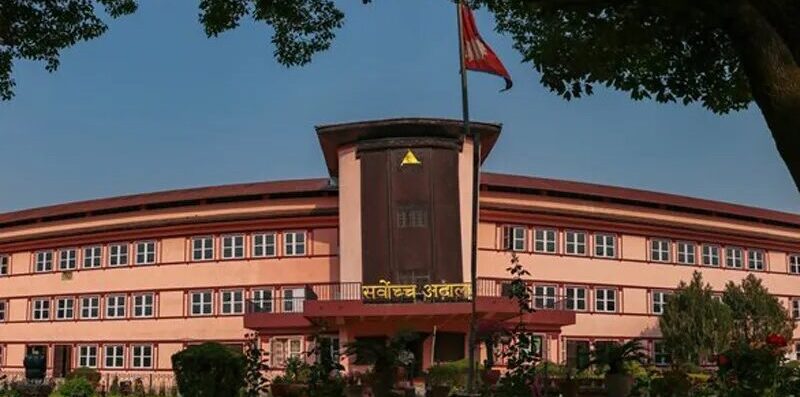KATHMANDU: The Supreme Court (SC) has paved the way for the implementation of the long-term electricity trade agreement with India.
A bench led by Chief Justice Prakashman Singh Raut, along with Justices Sapana Pradhan Malla and Mahesh Sharma Poudel, dismissed the writ petition filed by former administrator Suryanath Upadhyaya, which sought to halt the agreement’s implementation.
Upadhyaya had argued that the power trade agreement requires parliamentary approval because it encompasses not only the export of generated electricity but also issues related to investment and production.
He requested an immediate suspension of the agreement.
The agreement, signed during Indian Foreign Minister S. Jaishankar’s visit to Nepal on January, allows for the trade of 10,000 megawatts of electricity over a ten-year period, remaining valid for at least 25 years.
Judge Nahakul Subedi, in his ruling, noted that the long-term electricity trade agreement, signed between Nepal and India on January 4, 2024, involves not just electricity trade but also the utilization and distribution of natural resources.
This includes investments in hydropower generation and electricity transmission infrastructure, which are subject to Article 279 of the Constitution of Nepal.
The court sought input from the government on this matter and included amici curiae from both the Nepal Bar Association and the Supreme Court Bar Association.
Article 279 mandates that treaties or agreements involving peace, friendship, security, and the strategic relations of Nepal, as well as the distribution and use of natural resources, must be approved by a two-thirds majority in both houses of the Federal Parliament.
The petitioner asserted that the long-term power trade agreement, which aims to export 10,000 megawatts to India over ten years, should also be presented to the federal parliament for approval.
While the Supreme Court’s full bench dismissed the writ on Tuesday, it issued a directive to the government. Details of this directive have not yet been publicly disclosed.









Comment